CAP-NM Project Co-Directors
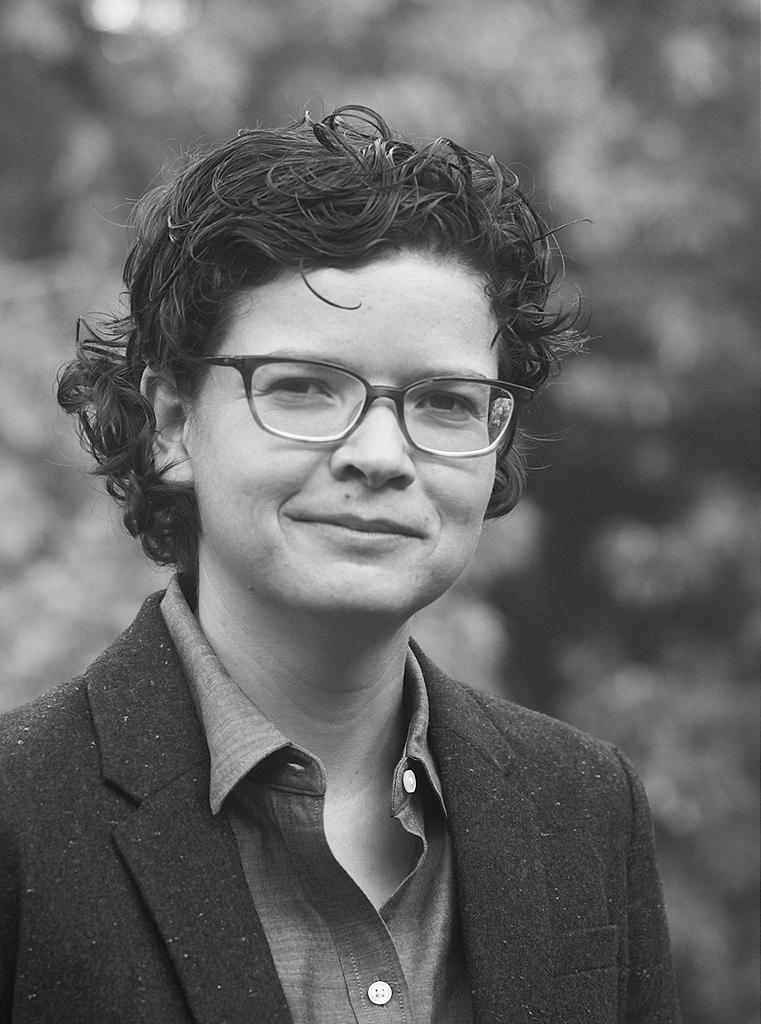
Kerry Banazek
Kerry Banazek is an Assistant Professor in the NMSU English Department. Trained as a poet but also as a restoration ecology field tech and technical writer before coming to the formal study of rhetoric and media, She takes a multidisciplinary approach to the study of writing, paying special attention to how infrastructures and environments shape specific writing, media production, and teaching practices. Her research agenda centers ways that histories of description, visualization, and technology co-inform one another, and her current book project (Word-Image-Machine: Description’s Cultural Contexts) argues explicitly that examining “what counts” as descriptive in varied settings provides new ways of understanding how language practices generate and delineate communities, which in turn helps situate studies of equity, expertise, and access to information. She is currently co- directing the University Writing Center and the Creative Research Center, an interdisciplinary lab housed in English that supports innovations in digital pedagogy and research. She’s regularly involved in Writing Across the Curriculum and Writing in the Disciplines initiatives at NMSU.
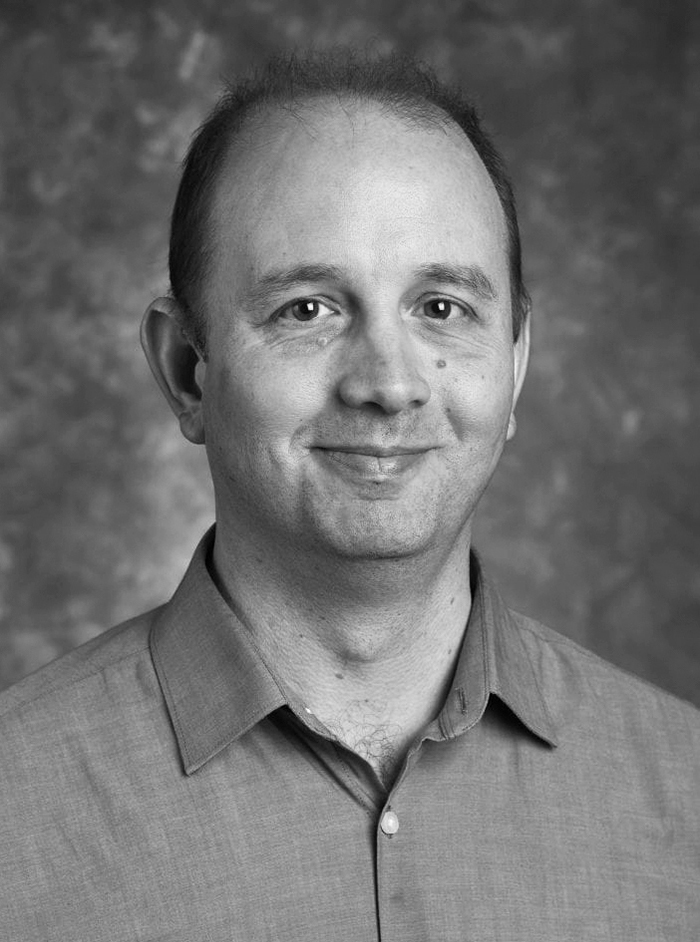
Eric Magrane
Eric Magrane is an assistant professor in the Department of Geography at NMSU. His work takes multiple forms, from scholarly to literary to artistic installation. He is the coeditor of the books The Sonoran Desert: A Literary Field Guide (University of Arizona Press, 2016), a hybrid field guide and literary anthology, and Geopoetics in Practice (Routledge’s Research in Culture, Space and Identity series, 2020). In his research and creative work, he is particularly interested in environmental narratives, art-science collaborations, and contemporary artistic and literary responses to the climate crisis. Much of his recent work has been in developing conceptions and practices of geopoetics within the growing area of the “geohumanities.” A first-generation college student, he holds an MFA in creative writing as well as a PhD in geography, both from the University of Arizona. Outside of the academy, he has also worked as a hiking guide and naturalist and has a background in environmental education. At NMSU. he teaches courses in human-environment geography, including regional courses such as New Mexico and the American West and courses such as Cultural Geography. He has recently developed a grad/upper-level undergrad geohumanities seminar for NMSU.
CAP-NM Graduate Assistants
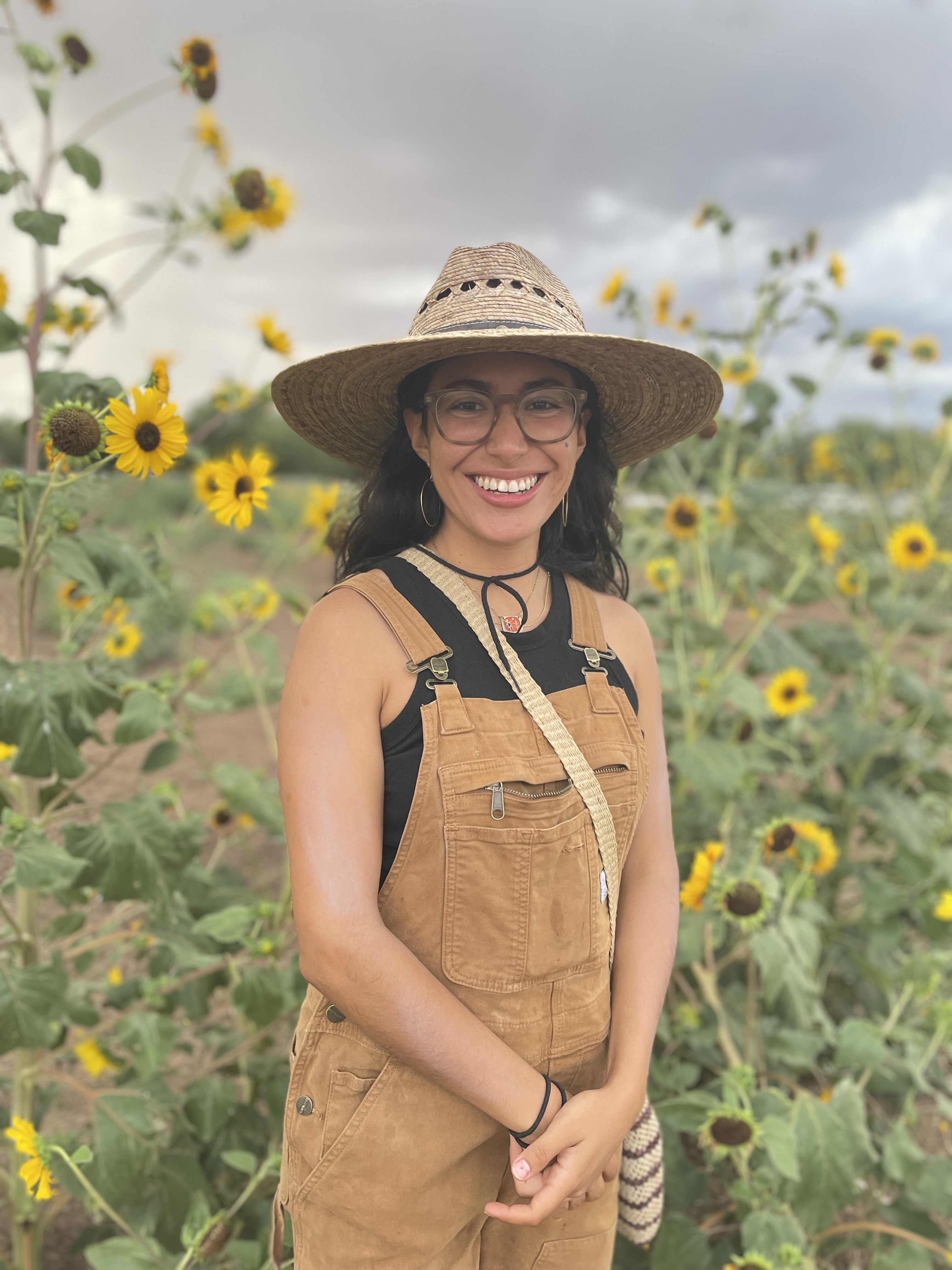
Esperanza Chairez Uriarte
(Summer 2023)
Esperanza was born and raised in Las Cruces, New Mexico and is currently pursuing a master's in NMSU’s Department of Geography and Environmental Studies. Her thesis work focuses on the Mesquite neighborhood in Las Cruces as a place-based case study towards understanding how narratives shape urban change. As part of this research, she hopes to co-create a multi-media print zine with other Las Cruces community members who are curious about creatively examining their relationship to this city. Esperanza holds a B.A. in Environmental Studies and Latin American Studies from Amherst College. After graduating, she spent some time in the Peruvian Amazon learning about how different Indigenous communties navigate the state's forestry program. After that, she spent a couple years in Colorado learning from various cultural and environmental non-profits. She returned to Las Cruces to strengthen her relationship with her hometown through agriculture and writing.
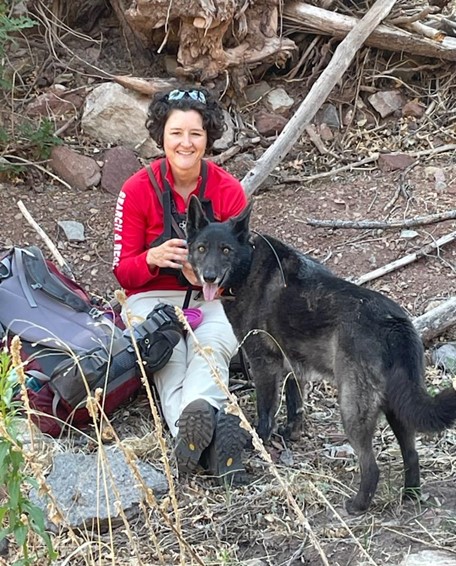
Dayna Dominguez
(Summer 2022)
Dayna Dominguez is a PhD student in the Department of Geography and Environmental Studies at the University of New Mexico. She obtained a BS in Biology at New Mexico State University and an MS in Wildlife Science and Conservation at NMSU. Dayna has broad research interests including natural processes modeling (landscapes, soil hydrology, wind, ect.), remote sensing, applied GIS uses in emergency response management, epidemiology, and natural resource management. Dayna hopes to combine her passion for training and utilizing canines in locating lost and missing persons with geographic methods. For her dissertation research, she is developing a model that utilizes canine odor detection information with relevant physical and geographical parameters for large scale searches and clandestine grave scenarios. Her long term goal is to develop an application available to the Search and Rescue community to improve search efficacy and information sharing to decrease the time it takes to bring home the lost.
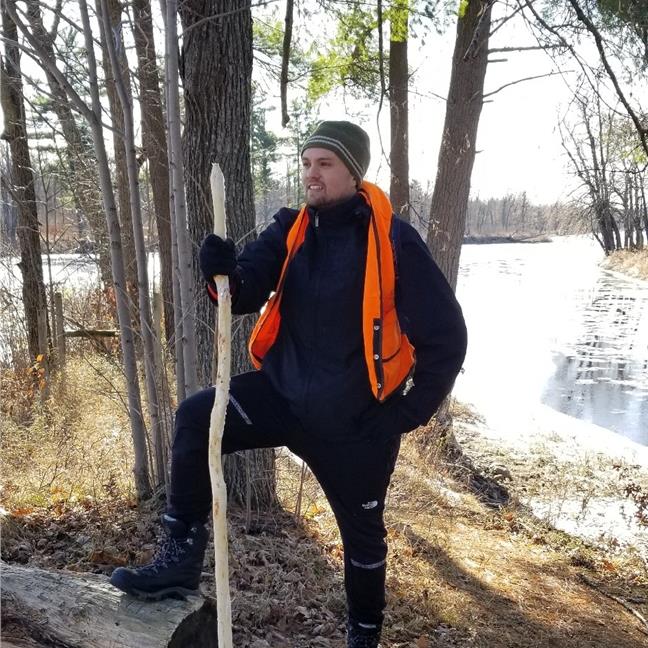
Hardt Bergmann
(Summer 2021-Spring 2022)
Hardt Bergmann is a PhD student in NMSU’s Department of Geography and Environmental Studies. He obtained a BA in geography with a nature-society concentration from Macalester College in 2017, and he received his master's in geography from NMSU in August 2022. An avid photographer, Hardt is interested in the longstanding connection between geography and the arts and the ability of artwork to bring places to people, influence perceptions of place and the environment, and contribute to environmental discourse. His master's thesis work involved developing a participatory photography project exploring how Las Cruces community members understand and experience modern water issues. For his dissertation research, Hardt is studying artist-in-residence programs at U.S. public lands and the ways they communicate ideas about place, nature, and conservation.
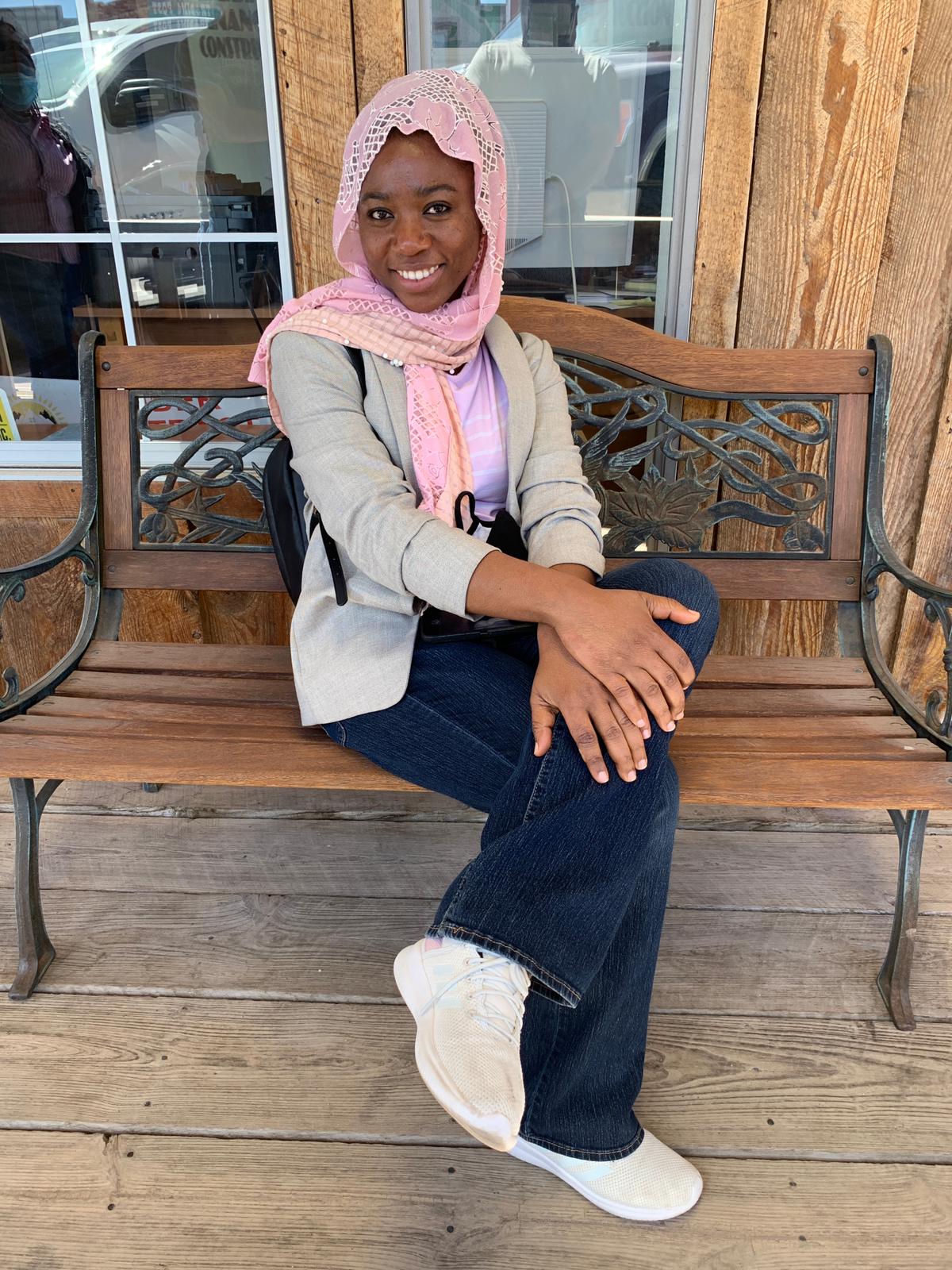
Rabiatu Mohammed
(Summer 2021)
Rabiatu Mohammed is a third year PhD student in Rhetoric and Professional Communication in the English Department at NMSU. She obtained her master’s degree from the same department, and her thesis centered on investigating how rhetorical bodies move and are received in different geographic, cultural, and intellectual spaces. Her current project is on the phenomenology of race and how it manifests in her home community. Rabiatu also teaches Technical and Scientific Communication in NMSU's English Department and is a Writing Program coordinator.
Gus Enger
(Summer 2022)
Gus Enger is a master’s student in NMSU’s Rhetoric and Professional Communication program, with the goal of completing the program in August 2023. Their studies focus on the mutual constitution of culture and ideology. Recently, their writing has turned to examining how the materiality of location and community contribute to normative social codes and identity. They’re currently teaching Composition and are excited about the opportunity to help their students find a similar passion for exploration and analysis.